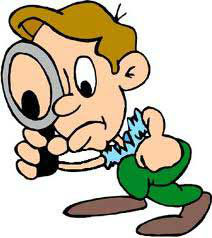Posted On: 08/29/2015 12:12:30 AM
Post# of 23244
Most of the dip & rip play's are more about Philosophy & Psychology then fundamentals!
Philosophy is the study of the general and fundamental nature of reality, existence, knowledge, values, reason, mind and language.[1][2][3] The Ancient Greek word φιλοσοφία (philosophia) was probably coined by Pythagoras[4] and literally means "love of wisdom" or "friend of wisdom."[5][6][7][8][9] Philosophy has been divided into many sub-fields. It has been divided chronologically (e.g., ancient and modern); by topic (the major topics being epistemology, logic, metaphysics, ethics, and aesthetics); and by style (e.g., analytic philosophy).
As a method, philosophy is often distinguished from other ways of addressing such problems by its questioning, critical, generally systematic approach and its reliance on rational argument.[10] As a noun, the term "philosophy" can refer to any body of knowledge.[11] Historically, these bodies of knowledge were commonly divided into natural philosophy, moral philosophy, and metaphysical philosophy.[9] In casual speech, the term can refer to any of "the most basic beliefs, concepts, and attitudes of an individual or group," (e.g., "Dr. Smith's philosophy of parenting" .[12]
.[12]
Psychology is the study of mind and behavior.[1][2] It is an academic discipline and an applied science which seeks to understand individuals and groups by establishing general principles and researching specific cases.[3][4] In this field, a professional practitioner or researcher is called a psychologist and can be classified as a social, behavioral, or cognitive scientist. Psychologists attempt to understand the role of mental functions in individual and social behavior, while also exploring the physiological and biological processes that underlie cognitive functions and behaviors.
Psychologists explore concepts such as perception, cognition, attention, emotion, intelligence, phenomenology, motivation, brain functioning, personality, behavior, and interpersonal relationships, including psychological resilience, family resilience, and other areas. Psychologists of diverse orientations also consider the unconscious mind.[5] Psychologists employ empirical methods to infer causal and correlational relationships between psychosocial variables. In addition, or in opposition, to employing empirical and deductive methods, some—especially clinical and counseling psychologists—at times rely upon symbolic interpretation and other inductive techniques. Psychology has been described as a "hub science",[6] with psychological findings linking to research and perspectives from the social sciences, natural sciences, medicine, humanities, and philosophy.
While psychological knowledge is often applied to the assessment and treatment of mental health problems, it is also directed towards understanding and solving problems in several spheres of human activity. By many accounts psychology ultimately aims to benefit society.[7][8] The majority of psychologists are involved in some kind of therapeutic role, practicing in clinical, counseling, or school settings. Many do scientific research on a wide range of topics related to mental processes and behavior, and typically work in university psychology departments or teach in other academic settings (e.g., medical schools, hospitals). Some are employed in industrial and organizational settings, or in other areas[9] such as human development and aging, sports, health, and the media, as well as in forensic investigation and other aspects of law.
Philosophy is the study of the general and fundamental nature of reality, existence, knowledge, values, reason, mind and language.[1][2][3] The Ancient Greek word φιλοσοφία (philosophia) was probably coined by Pythagoras[4] and literally means "love of wisdom" or "friend of wisdom."[5][6][7][8][9] Philosophy has been divided into many sub-fields. It has been divided chronologically (e.g., ancient and modern); by topic (the major topics being epistemology, logic, metaphysics, ethics, and aesthetics); and by style (e.g., analytic philosophy).
As a method, philosophy is often distinguished from other ways of addressing such problems by its questioning, critical, generally systematic approach and its reliance on rational argument.[10] As a noun, the term "philosophy" can refer to any body of knowledge.[11] Historically, these bodies of knowledge were commonly divided into natural philosophy, moral philosophy, and metaphysical philosophy.[9] In casual speech, the term can refer to any of "the most basic beliefs, concepts, and attitudes of an individual or group," (e.g., "Dr. Smith's philosophy of parenting"
Psychology is the study of mind and behavior.[1][2] It is an academic discipline and an applied science which seeks to understand individuals and groups by establishing general principles and researching specific cases.[3][4] In this field, a professional practitioner or researcher is called a psychologist and can be classified as a social, behavioral, or cognitive scientist. Psychologists attempt to understand the role of mental functions in individual and social behavior, while also exploring the physiological and biological processes that underlie cognitive functions and behaviors.
Psychologists explore concepts such as perception, cognition, attention, emotion, intelligence, phenomenology, motivation, brain functioning, personality, behavior, and interpersonal relationships, including psychological resilience, family resilience, and other areas. Psychologists of diverse orientations also consider the unconscious mind.[5] Psychologists employ empirical methods to infer causal and correlational relationships between psychosocial variables. In addition, or in opposition, to employing empirical and deductive methods, some—especially clinical and counseling psychologists—at times rely upon symbolic interpretation and other inductive techniques. Psychology has been described as a "hub science",[6] with psychological findings linking to research and perspectives from the social sciences, natural sciences, medicine, humanities, and philosophy.
While psychological knowledge is often applied to the assessment and treatment of mental health problems, it is also directed towards understanding and solving problems in several spheres of human activity. By many accounts psychology ultimately aims to benefit society.[7][8] The majority of psychologists are involved in some kind of therapeutic role, practicing in clinical, counseling, or school settings. Many do scientific research on a wide range of topics related to mental processes and behavior, and typically work in university psychology departments or teach in other academic settings (e.g., medical schools, hospitals). Some are employed in industrial and organizational settings, or in other areas[9] such as human development and aging, sports, health, and the media, as well as in forensic investigation and other aspects of law.
I'm in it to win it!
NASDAQ DIP and RIP
Here is the best word that describes what i do here.
Intuitive;
means having the ability to understand or know something without any direct evidence or reasoning process.
I was born with it, I'm truly blessed!
Alway's searching for winners'

NASDAQ DIP and RIP
Here is the best word that describes what i do here.
Intuitive;
means having the ability to understand or know something without any direct evidence or reasoning process.
I was born with it, I'm truly blessed!
Alway's searching for winners'


